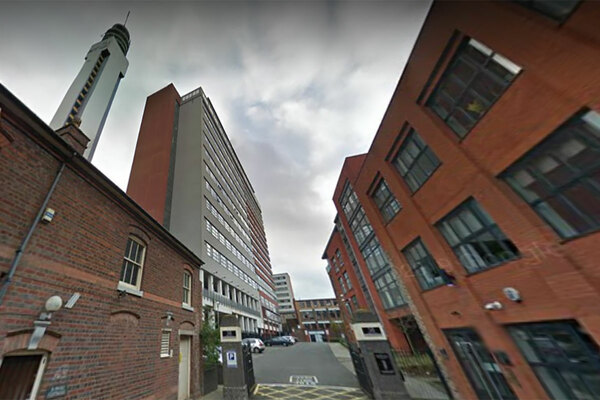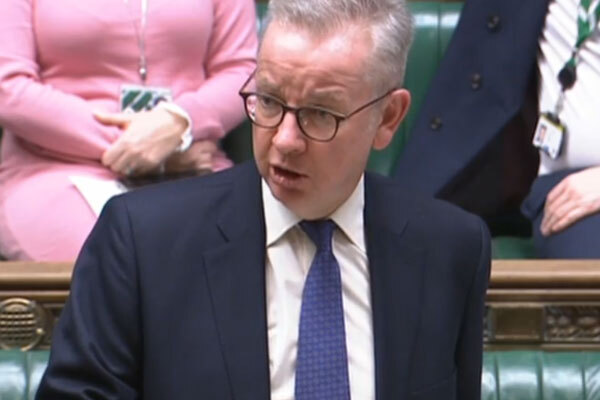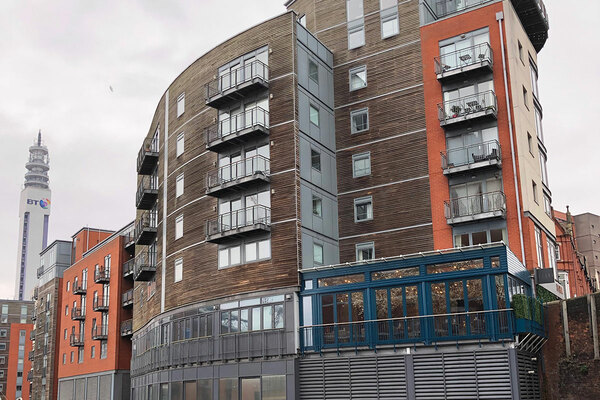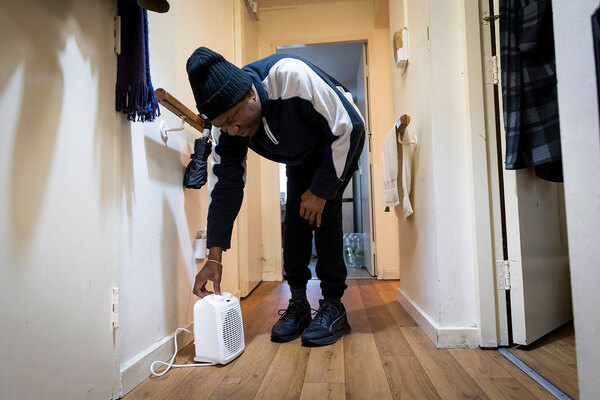Residents of 52 flats risk being ordered out of property if they cannot pay £250,000 insurance bill
Residents of 52 flats in a block with fire safety defects risk being ordered out of their homes unless they can pay a £250,000 insurance bill.

Inside Housing has spoken to residents of Compass Point in Wythenshawe, Greater Manchester, who will have 21 days to pay individual invoices of £5,000 each to cover the cost of next year’s insurance.
If the sums are not paid, even by one flat, and an alternative insurance provider cannot be found, the block could be deemed uninhabitable and residents would be required to leave.
The building requires work to fit missing fire breaks within the timber-frame structure and remove timber balconies. This is work that was exempt from government funding programmes to remove dangerous cladding.
As a result of the defects, the building’s original insurer, Allianz, declined to offer a new policy in September 2021.
A new insurer was found, but premiums rose from £12,000 to more than £150,000 for the block and from £300 to £3,000 for each household.
This year, premiums have now risen to £250,000 for the building – £5,000 each household – but the insurer has not offered any option for paying in instalments and demanded the full fee upfront.
As a result, residents have been told they will have to pay the full sum within 21 days of receiving an invoice in order to secure the legally required insurance.
Soaring insurance premiums for residents are a common but under-discussed side-effect of the building safety crisis that has gripped the nation in the wake of the Grenfell Tower fire. Inside Housing has reported on numerous instances of residents seeing their premiums rise by over 1,000% in the wake of fire safety defects being discovered.
Despite calls from campaigners, no government action has yet been taken to address this issue, leaving residents facing soaring costs and the risk of losing their homes if insurance cannot be found.
Tom Solan, a joint leaseholder in the Compass Point block alongside his partner, said: “There is a WhatsApp group of residents, and everybody is incredibly worried and concerned.
“We are potentially going to lose the flat and 52 residents could be homeless. Wythenshawe is not a rich area and there are certainly people in the building who are not going to be able to afford to pay.
“The government need to step up and change the rules so that we can stop insurers effectively extorting us – £250,000 for the whole block is just outrageous.
“It sometimes seems like the government thinks the cladding crisis is fixed, but it absolutely isn’t. We might be the first people this has happened to, but we certainly won’t be the last.”
An email sent to leaseholders last week by property manager Clear Building Management (CBM), seen by Inside Housing, said: “We will need to pay the insurer in full within 21 days of cover starting so we are asking that you please work with us to ensure that this can happen as soon as we are able to invoice, as if the building insurance fails to be paid, the property becomes uninhabitable and none of us want that to happen.”
In response to questions from Inside Housing, CBM said the building “may become uninhabitable” if it is not insured, but added that “we are doing everything we can to identify a way to get the premium funded, so that this will not be an issue”.
If the building was to be declared uninhabitable, residents would still be required to pay their mortgages and cover the cost of its upkeep even though they would not be allowed to live in it. CBM said this step was “very draconian and highly unusual nowadays”.
The company called on the government to step in with support. “A government backed ‘Fire Re’ scheme needs to be urgently introduced, and this must have the Treasury as ultimate underwriter so that mass market insurers can re-enter the market and get affordable reinsurance for the fire risks,” a spokesperson said.
The Financial Conduct Authority (FCA) was commissioned to prepare a report into the insurance market for blocks of flats by former housing secretary Michael Gove in January, after he said residents were being “failed” the industry and left with “crippling costs”.
But no report has yet been issued, with former housing secretary Greg Clark writing to the FCA on 2 September to call for its prompt publication.
He said “I am keen to act on any recommendations you have for government and industry as soon as possible. I impress upon you the need for this report to be published in early September and would appreciate a firm commitment on your part to do so.”
However, Mr Clark has since been replaced by Simon Clarke as housing secretary and with all political activity currently on hold to mourn the death of Queen Elizabeth II, the report has still not yet been published.
Giles Grover, a spokesperson for the End Our Cladding Scandal campaign, said: “The government has allowed the insurance industry to profit from the building safety crisis for too long in the vague hope that the broken market will correct itself.
“Rather than stepping in directly, they have been trying to gently nudge the insurers to produce a solution. This ongoing reliance on industry to do the right thing has failed miserably and [new housing secretary] Simon Clarke must recognise this and act swiftly to ensure more is done to clamp down on this immoral behaviour.”
CBM added that it is hopeful a new risk assessment of Compass Point could result in less onerous work being deemed sufficient to make the building safe, such as replacing uPVC windows with aluminium and installing fire alarms and sprinklers.
However, this will not come in time to save residents from the insurance costs.
Sign up for our fire safety newsletter
Already have an account? Click here to manage your newsletters












